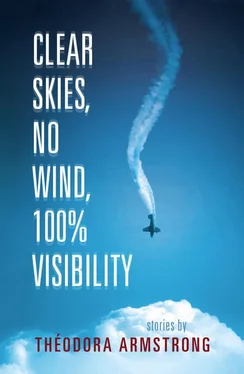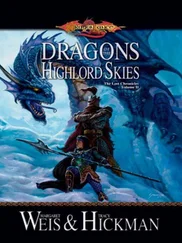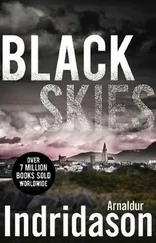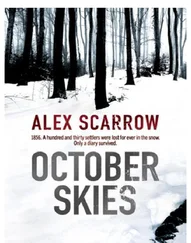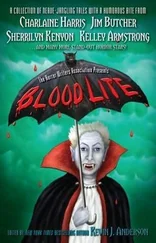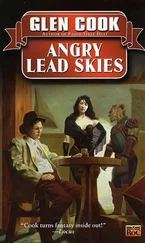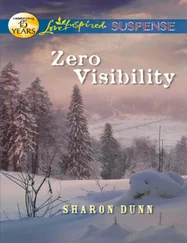“Just leave it on one setting,” Angie says. “Cold is cold.”
I’ve been thinking of more possibilities in which the plane lands safely. And the hawk no longer seems to be serving its purpose. Instead of a weightless exhilaration, what I feel when I think of the hawk is dread, the kind of terror that ricochets through your insides when your foot slips off a steel rail, when you make that critical mistake. The feeling is enough to eject me from the car and out into the highway’s swelter.
“I’m going to take a leak,” I say, slamming the door behind me before I can hear Angie’s reply. I walk quickly down the line of cars, heat hammering me from above, bouncing off the windshields and fenders so I have to squint, my sunglasses sitting useless on the car’s dash, where I threw them after whipping them off to massage the ache gathering between my eyes. I leave the road and cut off into the brush along the side of the highway, wading through waist-high grass and jumping over a drainage ditch before hitting the trees. Pricks of sweat erupt across my forehead. What are your intentions? It’s a question I thought I had the answer to. I wipe at my wet face. In the forest, I weave through the trees, my breath coming heavy after only a minute. I can feel something in my body, an ugly growth, an extra layer around the middle of something that might be insubstantial now, but is growing.
Once I’m hidden from the road I relieve myself, sending the stream over the side of a tree stump. In here the air is only hot, alive with the noise of insects and forest detritus crackling under my feet. Only now do I smell the fire. I picture the pilot climbing out of the wreck, walking through the burned-out forest back into town, how everything would smell better, taste better. He probably wouldn’t notice the heat. The whole world would look different. What would he do first? Eat a hot dog. Wade out waist-deep into the lake. Would he go back to exactly the way things were? Did he have someone to love? Would he keep flying? Would he keep waiting for summer fires? I wonder if in thirty-three years I will still be that man standing on the highway, squinting at the traffic, badly needing to take a leak but holding it. Suddenly falling off the deep end seems attractive to me. If Thom can fall off the grid, lose his mind without consequence and sit around the house all day reading, then why can’t I? I could go back to university, accomplish what Thom threw away. I’ve seen it happen: bursting into flames. Falling from great heights in a blazing ball of fire. Maybe Thom has it all figured out. When life gets too straight and narrow, throw a wrench into the mix. See what happens. What happens is everyone tiptoes around you, grabs you an extra beer from the fridge, says poor Thom , takes your picture, makes it part of a project.
Through the trees, tail lights brighten along the highway and car engines start at the head of the line. I jog down the middle of the road between the rows of cars, singles or families back in their seats staring straight ahead, hoping to move even if only by a few feet. By the time I reach the car, sweat is trickling down my back. The doors are open and I can hear the wailing before I even get close to the car. Angie is pink-faced in the back seat rocking the screaming child.
“You took the keys with you.” She calls over Sophie’s hoarse shrieking as I get into the front seat. I check my shorts and find them in one of the back pockets. It was autopilot: turning off the car, pocketing the keys as if I was alone. “Shit,” I say, turning the ignition and cranking the air-conditioner. The seatbelt is burning hot. I can tell Angie has been crying. “Sorry, Ange. My head’s not on straight.”
“It’s just Sophie.” Angie fusses over the child, adjusting her clothing, smoothing the sweaty wisps of her hair. “I don’t care about me.”
“I’m not right today,” I say, turning the dial higher, the frigid air making the sweat run cold along my hairline.
For a while, neither of us says anything. Angie’s crying again in the back seat, but not for attention. As soon as a tear hits her cheek she wipes it away quickly with the back of her hand and looks out the window, jutting out her chin. I keep checking in the rearview mirror and the tears keep coming. The tail lights and car engines are a false hope — we haven’t moved a foot. I sit like all the others in their cars, waiting blankly, staring straight ahead.
“We’re not going to make it there before dark,” Angie says.
Up ahead the tail lights glow again, a red wave of light coming down the rows. I put the car in drive. “Are you moving up?”
“I’ll stay back here.” Her head is back on the seat, her pink cheeks turned pale, the colouring of someone who has slept through a year. “I’m stroking her hair.”
We wait another half hour before we are led down the mountain. Our car is near the back of a convoy of fifteen travelling along the highway, ushered by mountain patrol. The forest is charred, burned out like a war zone. Higher up and even through the thick smoke, I can see the bursts of bright flames climbing to crest the mountain peaks.
“Who was it who called this morning?” Angie says, as we round the corner and begin our descent. Her voice is fragile, nearly transparent. She’s distracted by something out the window, the twisted remains of a forest.
“Oh, my supervisor. I’m in the clear.” There’s no reason for the lie. I fiddle with the air again. It’s too cold now.
“That’s a relief.”
Sophie’s calmed with Angie’s fingers through her hair and I’m not hearing much of anything all of sudden, following the route down the side of the mountain, wheels rolling along the smooth pavement. Something switches over in my brain and everything goes quiet. Angie’s stopped crying. All I have to do is follow the line and I’ll find my way out.
THE MOTEL PARKING LOT borders the beach and when we pull into a spot the headlights stretch right across the sand into the water and the reflected neon of the vacancy sign.
“What are you doing?” Angie says, turning to look at me.
“I’m too tired.”
“Why don’t I drive for a while? You can sleep on the way.”
“I want to stay here tonight.”
We unload, leaving Sophie in her seat to dream, making sure one of us is always on our way to or from the car so she’s never alone. Angie sets out Sophie’s pajamas on the floral bedspread, and the playpen next to her side of the bed. In the morning, when we step out of the motel room, the sun will blind us. We’ll spend the day under the willow tree at the edge of the lake and we’ll agree it was a good idea to change our plans.
“Everything in?” I say, poking my head in the door as Angie sets up a spot for diaper-changing. “I’ll bring her in.”
“Don’t wake her up.”
I lean over Sophie in the car, slide my hands beneath her and gently lift her out of the seat, her body drooping over my arms, face turned skyward, mouth hanging open, ready to drink down the night sky. Abandon. Angie stands in the door of the motel watching us, a broken shaft of light stretching across the concrete and hitting our feet. “Don’t wake her up,” she whispers across the parking lot.
“Tell them we’re not coming,” I say.
“Are you sure?”
“Call and tell them Sophie got sick.”
Behind the curtains Angie is on the phone. The motel is illuminated under streetlights and neon, but when I turn toward the lake I’m surrounded by a darkness so immense I can’t wrap my head around it. I tip my head back like Sophie, so far back my mouth hangs open under the black bowl of a bottomless sky, like the black water of a lake over our heads. Abandon. I spin her gently, dipping her head toward the warm sand and back up into the night, bringing her ear to my mouth and whispering, baby, baby, baby . The smell of her makes every minute of my life thus far — shitty or not — worth it.
Читать дальше
